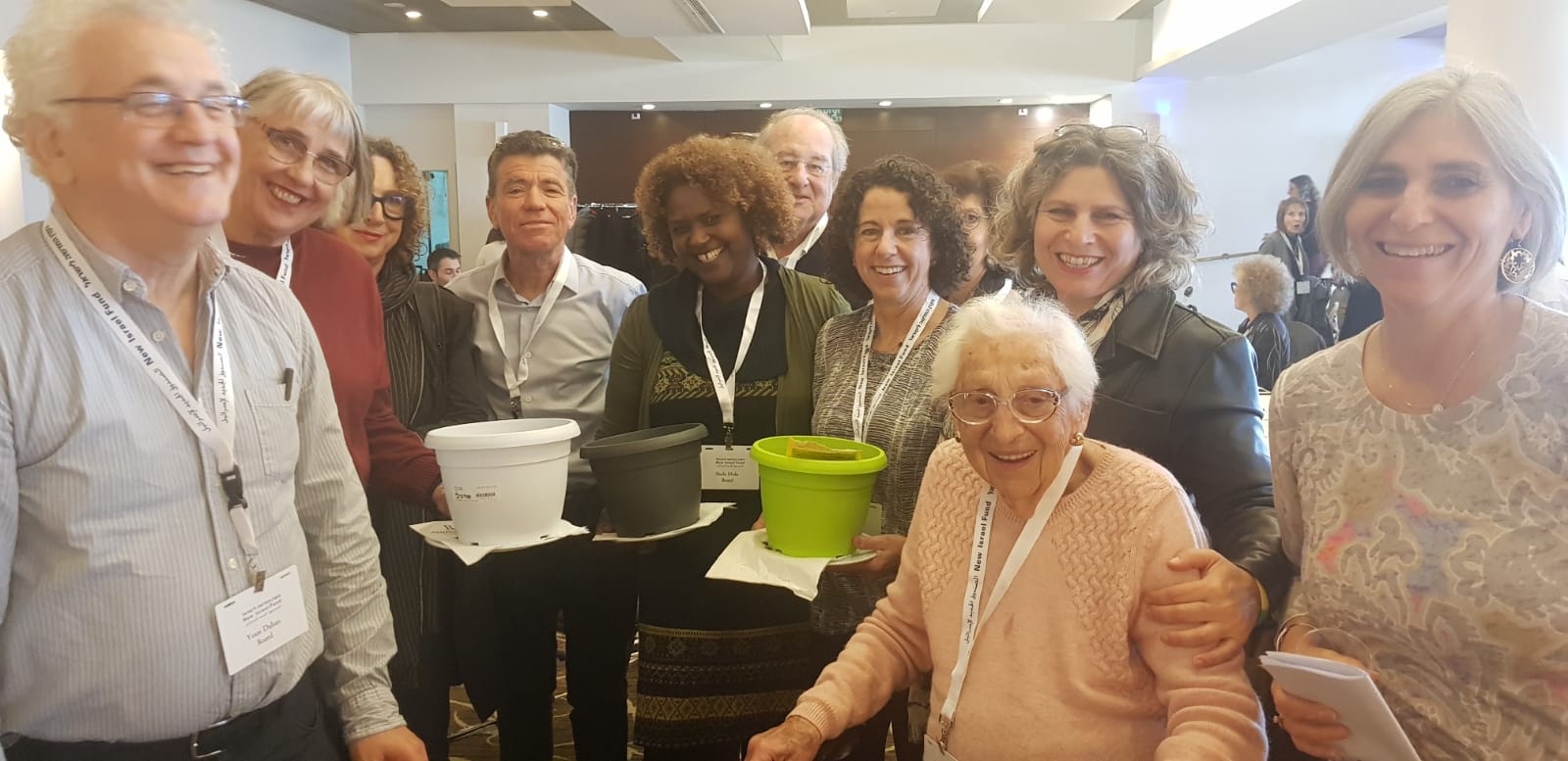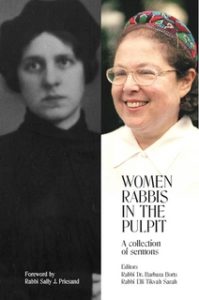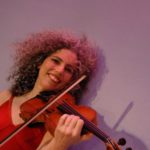Alice Shalvi: Scholar, Feminist, Educator and Peace Activist
Alice Shalvi did not only make a remarkable career as a university teacher, but also as an educator and activist. Her biography also reflects the development of feminist activism in Israel.
Alice Shalvi was born in 1926 in Essen/Germany to an orthodox Galician family. In May 1934 her family had to flee to Great Britain where Alice grew up. In 1944 she was one of the few women students in Cambridge ¬– a particularly impressive achievement for a Jewish girl. After finishing a BA in English literature Alice Shalvi moved to the London School of Economics and completed an MA in Social work. As an ardent Zionist she wished to apply her skills as a social worker to help integrate Holocaust survivors into the society of the Jewish state. However, when she immigrated to Israel in late 1949 she found no job as a social worker. Instead, she was offered a position in the English department of the Hebrew University. She taught there for forty years until her retirement in 1990. In 1950 Alice married Moshe Shelkowitz, an immigrant from the US. The couple later changed their name to Shalvi. Their six children were born between 1952 and 1967. Alice Shalvi could make her remarkable career because her husband Moshe was not only a supporting partner, he was also a true feminist. Being an editor and publisher of reference books he initiated the ground-breaking “Jewish Women: A Comprehensive Historical Encyclopedia“. Editors were Paula Hyman and Daliah Ofer who were assisted by Alice and Moshe Shalvi. The Encyclopedia was published in 2006.
Feminist Awakening and the Beginning of Women’s Studies
Alice Shalvi’s career as an academic was very successful: she taught in the English department of the Hebrew University and in 1969 established the English department at the newly founded University of the Negev in Beer Sheva (since 1973 Ben Gurion University of the Negev). However, when in 1973 she wanted to apply for the position of Dean of Beer Sheva University, she was told that she did not have a chance – because she was a woman. Back at the Hebrew University in Jerusalem she talked to women colleagues who on one hand had made respectable careers, but on the other hand had all experienced discrimination in promotions. What was most shocking for them was the revelation of widespread sexual harassment at the university. When the women presented data concerning their discrimination to the Rector of the University he was sympathetic and promised improvements. Still, the women were too embarrassed to raise the topic of sexual harassment. In 1998 the “Prevention of Sexual Harassment Law” was issued. In 2011 Moshe Katsav, former president of Israel, was sentenced to seven years in prison for rape and sexual harassment.
Another lasting result of this new consciousness of the women academics was the development of Women’s Studies. The newer universities in Tel Aviv and Beer Sheva readily introduced Women’s Studies into their curricula, the conservative Hebrew University lagged behind. Therefore, feminist lecturers in Jerusalem introduced Women’s studies into their fields of specialization and into their classes. Alice Shalvi investigated the image of women in Chaucer and Shakespeare, later in all of English literature.
Pointing out Inequality
For many Israelis the Yom Kippur War of 1973 became an eye-opener to the extend of women’s inequality and discrimination. With the men drafted industries ground to a halt because there were no technicians, public transport collapsed because there were no drivers, decision-making processes in the economy had to be delayed because there were no decision makers. The reason for this was that these vital and well paid positions were all in the hands of men who had to serve in the army while there were no women who could substitute for them in their absence. For the first time in the history of the State of Israel, people were made aware of the extent to which women had been relegated to inferior, lower-paid positions, were employed primarily in the service professions and excluded from vital decision-making and determination of public policy.
In 1975, Prime Minister Yizhak Rabin invited Ora Namir to head a commission of enquiry into the status of women in Israel. Alice Shalvi was among the women in the commission. During the two year existence of the commission they collected and collated hitherto unknown data on women in Israel, which were summarized in a two-volume report that not only exposed the truth behind the myth of Israel as an egalitarian society, but also presented 140 recommendations for change. However, very little government action followed (in part because the prime minister to whom the commission reported to was no longer Yitzchak Rabin, but Menahem Begin).
Improving Education for Religious Girls
While working in the Namir Commission Alice Shalvi took upon herself another task, which also had to do with the empowerment of women, albeit not in the political but in the religious realm. In 1975 she took over the voluntary and unpaid directorship of Pelech (Spindle), a progressive school for ultra-orthodox girls. Although the study of Talmud was prohibited for girls in Jewish tradition it was a compulsory subject in Pelech. The girls also studied topics like world literature that were taboo for the ultra-orthodox community. Therefore the ultra-orthodox community boycotted Pelech, however, modern orthodox parents – among them Alice and Moshe Shalvi – were happy to send their girls to study there. Although Shalvi made the school a success she was far too liberal for the taste of the religious educators: She hired a young woman who had studied at the Conservative (non-orthodox) Jewish Theological Seminary in New York to teach religious studies, she arranged meetings between her students and girls from Arab schools and – what was the worst transgression – she was active in the Israel Women’s Network and openly criticized the Chief Rabbinate concerning women’s status at divorce trials. The department of religious education demanded that she desist immediately from her political actions otherwise the school would lose accreditation. Shalvi withdrew from Pelech in 1991.
The Israel Women’s Network
The Israel Women’s Network (IWN) had been founded in the wake of the elections of 1984. Research on the electorate of these elections showed that there were more women voting than men. Women also were better educated, i.e. they had more years of schooling. Nevertheless the number of female members of parliament (MPs) shrank. A number of women academics decided to act against underrepresentation of women in the Knesseth and helping the few women politicians to pass legislation to improve women’s rights. For this purpose they founded the Israel Women’s Network. After a decade of research and women’s studies the academics of the IWN undertook to support the women politician’s legislative proposals by providing data, appear as experts on committees, help bring issues to public attention, promote their initiatives. Out of these modest beginnings developed a respected think tank dealing with all aspects of women’s discrimination in so different spheres as the rabbinic courts, the army, social security and support of victims of human trafficking etc.
Peace Activist
During the Six-Day War, in June 1967, Israel had occupied the West Bank and East Jerusalem. Although Alice Shalvi is living in Jerusalem it took her until 1986 to meet an Arab woman that was not doing menial works for Jews, but similar to herself in class and educational background. Father Emanuel of the Dormition Abbey introduced her to a lecturer of botany at Bir Zeit University in Ramallah. They talked about themselves, not politics and decided to meet again and bring some friends. All women who came had already participated in groups that worked to further peace and coexistence of Jews and Palestinians. Still, the new Arab participants did not accept the first partner as representative because she was Christian. When the first Intifada broke out at the end of 1987 the meetings came to a halt. But the women continued to work for peace. They organized weekly demonstrations against the occupation on Paris Square near the prime minister’s residence and at Zion Gate in Jerusalem. They wore black T-Shirts and gave themselves the name Women in Black. Alice Shalvi not only demonstrated with the Women in Black in Israel but also abroad. Women from abroad also joined the Women in Black in Israel. Among them was Simone Susskind from Brussels. In 1989 she organized a dialogue between Jewish and Palestinian women in Brussels. Among the Jewish women there was not only Alice Shalvi but also two members of Knesseth: Shulamit Aloni from the Civil Rights List and Nava Arad from the Labour Party. After initial tensions and accusations the talks became constructive. Naomi Chazan, a political scientist and board member of the IWN, and Hanan Ashrawi, the representative of PLO, drew up a joint paper calling for a two-state-solution and a cessation of hostilities – and this four years before the Oslo accords. However, the joint paper was never presented to the press because Nava Arad did not get the permission from the Labour Party in Jerusalem in time.
In 2000 Alice Shalvi retired from the IWN. Today Alice Shalvi is a board member of the New Israel Fund, an organisation supporting progressive civil society in Israel, as is Naomi Chazan.
 Photo: Alice Shalvi (2nd from the right) at the Boardmeeting of the New Israel Fund in Tel Aviv, February 2020. © NIF
Photo: Alice Shalvi (2nd from the right) at the Boardmeeting of the New Israel Fund in Tel Aviv, February 2020. © NIF
Bet Debora
In 2000 Alice Shalvi came on her first visit to Germany since her escape in 1934. She was filled with trepidations and fears. But she found a changed Germany and could make peace with it. On this trip she also met with the founders of Bet Debora, Lara Dämmig, Monika Herweg and Elisa Klapheck, and was impressed by their enthusiasm and their vision of a renewal of Judaism in Europe after the fall of the communist regimes and of the role of women in this development. Shalvi agreed to participate in the second Bet Debora Conference, which took place in Berlin in 2001. There she got to know the richness of European Judaism. So far she had known English, Israeli and American Judaism, but no post-Holocaust European Jewish communities. She had not been aware how vibrant this Judaism was and how much creativity and energy was to be found among European Jewish women. She also came to later conferences. With her rich knowledge of Judaism, her vivacity and her enthusiasm for new ideas she was one of the mentors of Bet Debora.
Eleonore Lappin-Eppel


